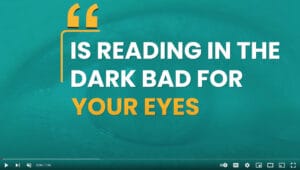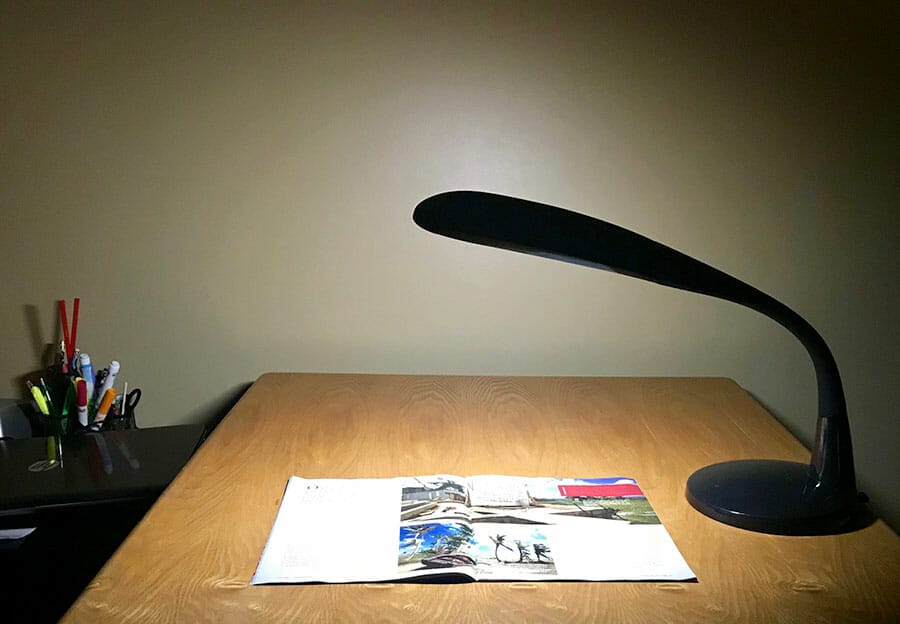Why is my vision worse when I read in the dark? Night Myopia: What is it and is it bad for your eyes?
When we read in the dark, some people will experience poor or blurry vision, a phenomenon called night myopia. Studies have shown that young adults, particularly teenagers, are at a higher risk of having night myopia. But what causes this phenomena and is it bad for your eyes?
The prevailing theory was that night myopia happened because the person always had myopia (nearsighted), but because the demands on the visual system are more demanding at night, they only noticed poor vision at night time. In fact a simple google search will show lots of articles that state this as the definitive cause of night myopia.
However the true cause of night myopia is a little more complex. While the above may also be true, there is a lot more to night myopia than meets the eye (pun intended).
One theory is that our eyes change slightly in low light conditions, this small change leads to a blurring effect. (Salmon T. O. van de Pol C . (2006). Normal-eye Zernike coefficients and root-mean-square wavefront errors. Journal of Cataract and Refractive Surgery, 32:2064–2074. )
Another strong theory is that our eyes receive less information in low light conditions, and as a result, don't know where to focus. To compensate for the low light conditions, our eyes will focus closer than they need to, causing a bit of blur and strain. A 2012 study found that the defocus shift occurring in dim light is mainly due to accommodation errors and is generally present only in very low light conditions.(https://journals.plos.org/plosone/article?id=10.1371/journal.pone.0040239)
There is limited research on the long term impact of night myopia, with no strong evidence that it has a long term harmful impact on vision. However since it is generally only present in extreme low light conditions, it is safest to try not to read in very low light conditions.
If you have difficulty driving at night or doing activities in the dark, it may indicate that there is more going on, and therefore it is always best to visit an optometrist for a comprehensive evaluation. Furthermore special lens coatings, adding light in the vehicle, and contrast training may improve your vision at night and reduce the risks of night myopia.
Take our online visual skills assessment to help identify if you or your child has a potential visual deficit that may be interfering with success in the classroom, work, or sports.











